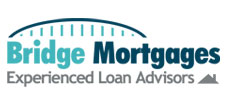Negative amortization mortgages have payment options that allow reduced monthly payments on a loan are insufficient to pay the interest accruing on the principal. The additional interest cost is added to the loan balance. The increased loan balance results in higher interest expense and an increasing loan balance. Thus, the term "negative amortization" applies to the principal mortgage to cover the insufficient funds to amortize the loan balance. The homeowner is, in effect, borrowing more money each month to cover the interest on the mortgage. The monthly payment is a deferred interest payment. Until the loan starts to amortize, there isn't a principal part of the monthly payment. Read the Full Negative Amortization Mortgage Article.
Often people think that filing bankruptcy is their only option once they get into a financial bind, but don't count out some of the alternatives that can also save the day. For example, mortgage refinancing could be the answer. Even if you have bad credit or low credit scores there is a chance you are still eligible for a mortgage refinancing and/or a second mortgage. Read the Full BK Mortgage Loan Article.
Many renters want to own their own home, but they simply don't have the down payment to make the purchase. If you're able to afford a house payment as much as your monthly rent, an 80-20 no money down loan could get you out of the rent trap. (80% first mortgage - 20% second mortgage) "It allows people to buy without a down payment, or for those people who would prefer not to touch their savings to get into a house," says mortgage expert. "What we're seeing is a lot of young professionals," he adds. "People who have gotten out of college and have good jobs. They have good credit, but they haven't had the opportunity to accumulate a lot of savings." Read the Full 80-20 Zero Down Mortgage Article.
A credit score is a rating that is also called a fico score. This rating yields a number that reflects your level risk to the creditors. The higher the score the better your credit rating. The lower your score, the bigger risk of credit you are considered. The score is generated using statistical model that considers credit accounts from your credit report. Credit scores will determine the loan amount, interest rate, mortgage terms, and in some cases the amount closing costs charged. Read the Full Credit Scores for Refinancing Article.
Ameriquest Parent Company Lays off 3,800
By Jebb Harris
Existing Home Sales Dip: Mortgage Interest Rates Up
By Mathew Padilla
Regulator Warns About Nontraditional Mortgages
By E. Scott Reckard
Mortgage Defaults & Foreclosures on the Rise in West & Southwest
By Foreclosures.com
|

